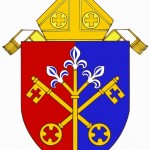 People don’t read much any more.
People don’t read much any more.
And they don’t listen so much, either.
This presents an imposing challenge for the U.S. Bishops, who have the responsibility for clearly elucidating Catholic teaching on contemporary moral issues.
We all know people who are self-identified Catholics, yet who deeply misunderstand or have never heard the clear teaching of the Church on flashpoint issues like abortion, same-sex marriage, and bioethical issues including stem cell research and in vitro fertilization.
Shift in Public Attitudes Toward Assisted Suicide – The information shortfall was brought front and center this week when a Gallup Poll released May 31 showed that Americans are closely divided on the issue of physician-assisted suicide. Asked whether assisted suicide was morally acceptable or morally wrong, nearly half of respondents—45%—believed it was acceptable to take a life if the person was ill or for some other reason he wanted to die.
This sobering statistic means that for many ordinary Catholics in the pew, assisted suicide is just another option in the decision regarding end-of-life care. It’s something to be considered for mom and dad, or for oneself, should illness or pain make continuing life on God’s timetable somehow inconvenient.
So in two weeks, the U.S. Conference of Catholic Bishops will step up to approve a proposed statement on the topic of assisted suicide. The document, To Live Each Day with Dignity, will address the hardships and fears of patients facing terminal illness, and the importance of life-affirming palliative care.
Highlights of the Document – The bishops teach that assisting an individual to commit suicide is not true “compassion” since its goal is not to eliminate suffering, but to eliminate the patient. In contrast, true compassion seeks the good of the other—meaning, true compassion helps to alleviate suffering and provide comfort, while validating the individual’s true worth.
The statement continues, explaining that acceptance of assisted suicide results in a decrease of freedom. If suicide is an option, then it can too easily become a responsibility, as medical bills pile up and care of the patient may seem to be “too much trouble.” As evidence of this, the bishops cite the situation in the Netherlands, where acceptance of assisted suicide has progressed to involuntary euthanasia.
Assisted suicide, the bishops add, is a poor substitute for pain control (palliative care). There is a risk that with the easy availability of assisted suicide, families and medical caretakers will stop short of doing all that could be done to help an aged patient. Rather, we should follow what Blessed John Paul II called “the way of love and true mercy”—caring for the patient until such time as God calls him or her home.
Why now? – In announcing that this would be an agenda item for their June General Assembly in Seattle, Cardinal Daniel DiNardo (Committee on Pro-Life Activities) explained that there has been relatively little movement on this area since Dr. Jack Kevorkian’s much-touted killing spree in the 1980s and early ‘90s.
However, assisted suicide has reemerged in the public eye recently, as organizations such as Georgia’s “Final Exit Network,” following guidelines outlined in Oregon-based “Death and Dying” founder Derek Humphry’s best-selling suicide how-to manual Final Exit, assisted in perhaps 200 suicides before the federal government stepped in to investigate and prosecute in 2009. So-called “exit guides” visited the ill and infirm in their homes, teaching them how to suffocate themselves utilizing a helium tank and a plastic hood.
Michigan’s Bishops Had Responded in 1997 – This will be the first time the USCCB as a body has addressed the issue of assisted suicide on a national scale. However, the bishops of the State of Michigan had issued a pastoral letter on the topic back in 1997, in response to the suicide campaign launched by Michigan-based suicide proponent Dr. Jack Kevorkian, nicknamed “Dr. Death.” On the Feast of the Triumph of the Cross (September 14), the bishops of the seven dioceses in Michigan, concerned about the confusion and anxiety on moral questions surrounding dying and death, had issued a pastoral letter to Catholics of the state of Michigan, titled “Living and Dying According to the Voice of Faith.”
This Pastoral Letter is divided into two parts:
- a summation of Catholic theology on dying and death; and
- an explanation of why the Church professes these beliefs, and how we can find peace for ourselves and our families by living and dying according to the voice of faith.
Acknowledging that death and dying are not easy, Michigan’s bishops said:
For many people the dying process is especially frightening because it seems to be the final and most complete moment of isolation, separation and loneliness. We imagine being caught in unending physical agony with no one who could possibly understand, much less comfort us. Following the voice of fear, we run away from death and desperately try to put it out of mind and sight—as far and as long as possible. And when it seems that death can no longer be avoided, we are naturally tempted to consider a quick escape or exit.
In the face of these questions and struggles, as a Church we have the good news of our faith in the Death-Resurrection of Jesus. We proclaim a message of hope: no one has to die alone or unwanted, in terrible physical pain or psychological distress. We put our faith and hope into concrete expression by promising to share our life journey with one another. As brothers and sisters in a family of faith, we live and die together.
Five Last Things – The letter cites the work of Dr. Ira Byock, President of the American Academy of Hospice and Palliative Medicine, who listed the “five last things” which people most want or need at the end of their lives: granting forgiveness, seeking forgiveness, expressing gratitude, demonstrating love, and saying good-bye. The compassionate presence of family and friends sanctifies the dying process by allowing these steps to occur among loving, supportive people.
You can read the rest of their statement, as well as questions for additional reflection, here.
Dr. Kevorkian Died This Week—of Natural Causes
It’s worth noting that Dr. Jack Kevorkian, nicknamed “Doctor Death” by Time magazine, when he passed away this week at age 83, did not in the end seek the “comfort” of suicide for which he had campaigned during his long career.
Sometimes hailed as a “hero” who sought to end the terrible suffering of the terminally ill, Dr. Kevorkian functioned from a less than altruistic motive: He had a passion for human experimentation, what he called (in his seminal work Prescription Medicide) “obitiatry.” In his own words:
I feel it is only decent and fair to explain my ultimate aim… It is not simply to help suffering or doomed [his term for non ill people who want to die, for example the people at Jonestown! p 198] persons kill themselves–that is merely the first step, an early distasteful professional obligation (now called medicide) that nobody in his or her right mind would savor… What I find most satisfying is the prospect of making possible the performance of invaluable experiments or other beneficial medical acts under conditions that this first unpleasant step can help establish–in a word, obitiatry…
Lifenews.com has a complete report regarding the adulation Kevorkian has received in the media following news of his death. Read the complete story here.
But Dr. Kevorkian, broken as he may have been, remains a child of God. The Catholic Church recognizes this, and offers prayers for his soul—even while striving to negate the damage his distorted lifeview has wrought in society. The Archdiocese of Detroit released the following statement:
Left out in much of the commentary on the death of Jack Kevorkian is the sobering and deadly legacy he leaves behind. May God have mercy on his soul and on the scores of confused, conflicted, and, at times, clinically depressed victims he killed.
The Catholic Church holds all human life sacred. It is both ironic and tragic that Kevorkian himself was afforded a dignified, natural death in a hospital, something he denied to those who came to him in desperation, only to be poisoned and have their bodies left in places such as vans and motel rooms.
May his soul, and the souls of all the faithful departed, by the mercy of God rest in peace.











